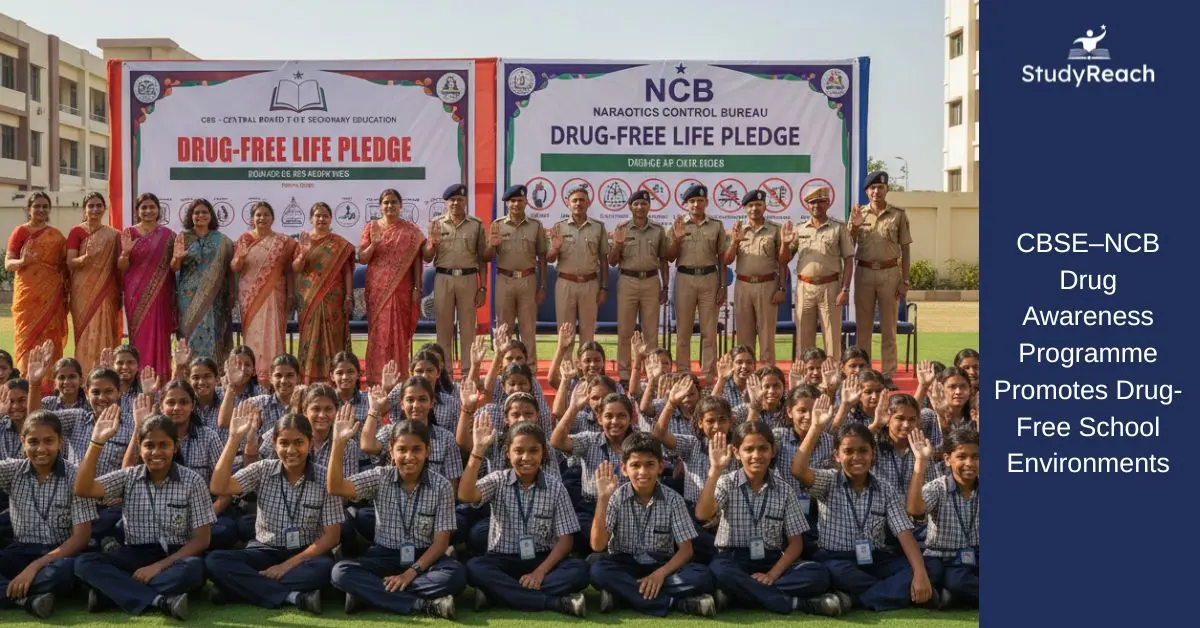
CBSE–NCB Drug Awareness Programme: 5 Inspiring Steps for a Drug-Free Future
The CBSE–NCB Drug Awareness Programme is a joint initiative by the Central Board of Secondary Education (CBSE) and the Narcotics Control Bureau (NCB), aimed at creating drug-free school environments. Through awareness campaigns, counseling programs, and student engagement, it promotes vigilance, mental health, and a shared commitment to a healthier society.
🔗 This article is part of our CBSE 2025 Education Series, designed to help students, teachers, and parents understand the major reforms introduced by CBSE and NEP 2020. Explore related guides for deeper insights:
Table of Contents
1. CBSE–NCB Drug Awareness Programme: A Joint National Initiative
The CBSE–NCB Drug Awareness Programme was launched following an MoU signed on 3rd September 2025 between CBSE and NCB. The initiative, highlighted during a special event at Sanskriti School, New Delhi, aims to strengthen the nation’s fight against substance abuse and build a safer, more informed generation.
“Education must not only nurture intellect but also protect students from harmful influences,”
— Mrs. Richa Sharma Agnihotri, Principal, Sanskriti School.
2. Schools as the First Line of Defence
Schools play a vital role in early detection and prevention of substance abuse. CBSE emphasizes that school environments should promote health, discipline, and emotional well-being, helping students make informed, drug-free choices.
3. NCB’s Comprehensive Approach
Dr. Anees C., IRS, Deputy Director of NCB, shared that the bureau’s approach includes:
- Law enforcement against drug trafficking
- Capacity building for educators and youth workers
- Awareness and outreach through public campaigns
He encouraged schools to use the NCB MANAS Helpline (1933) — a toll-free number to report or seek help regarding drug abuse and trafficking.
4. CBSE’s Mental Health & Well-Being Initiatives
CBSE is actively integrating mental health and well-being programs within the education system. These initiatives encourage parents, teachers, and students to engage in preventive and supportive actions.
| CBSE Initiative | Objective |
| CBSE–NCB MoU | Joint awareness for drug prevention |
| Counseling Hub & Spoke Model | Peer and teacher support system |
| Parenting Calendar | Promoting mindful parenting |
| Career Guidance Dashboard | Helping students find positive paths |
| CBSE–AIIMS MATE Programme | Strengthening mental health literacy |
Learn more about CBSE’s well-being programs on the official site: www.cbse.gov.in
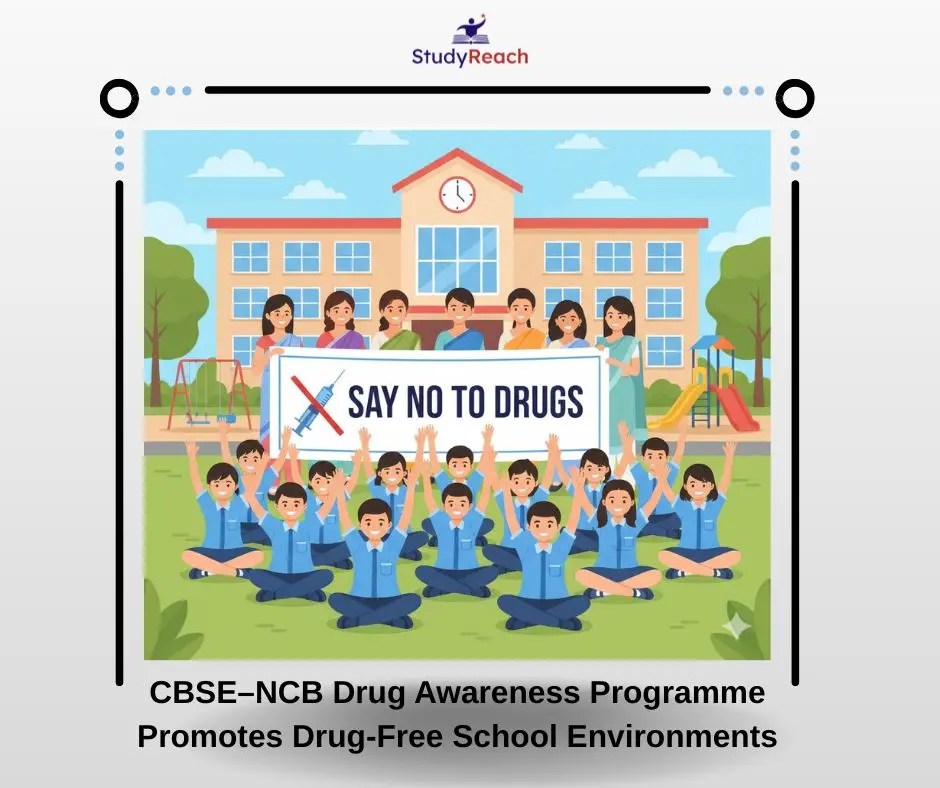
5. Student Engagement: Say No to Drugs, Yes to Dreams
A Nukkad Natak (street play) performed by students became the event’s highlight — spreading a strong message:
“Say No to Drugs, Yes to Life and Yes to Dreams.”
Over 500 students and 25 teachers participated, taking a collective pledge for a drug-free life, demonstrating that awareness begins with unity.
6. Early Intervention and Community Involvement
The programme shared strategies for early intervention, de-addiction, and rehabilitation, emphasizing community participation. Schools, parents, and local organizations must work together to recognize warning signs and support affected youth.
7. Aligning with the National Vision
This initiative aligns with India’s national goal of creating vigilant, resilient, and informed young citizens. By integrating substance abuse prevention into education, the CBSE–NCB collaboration supports a safer and more responsible generation.
8. How Schools Can Promote Drug-Free Environments
Here’s how schools can contribute actively to the CBSE–NCB Drug Awareness Programme:
- Conduct annual drug awareness workshops.
- Include life skills and moral education in the curriculum.
- Display anti-drug posters and helpline numbers on campus.
- Train teachers to identify behavioral warning signs.
- Encourage students to join peer awareness clubs.
Conclusion:
The CBSE–NCB Drug Awareness Programme is more than a campaign — it’s a movement for a healthier, drug-free India. When schools, parents, and students come together, awareness transforms into action. Let’s pledge to build learning spaces where every child says.
“No to Drugs, Yes to Life, and Yes to Dreams.”
2. When was the CBSE–NCB MoU signed?
The Memorandum of Understanding was signed on 3rd September 2025.
3. How can schools participate in this initiative?
Schools can organize awareness events, workshops, and pledge drives, and display helpline numbers.
4. What is the NCB MANAS Helpline number?
The NCB MANAS Helpline is 1933, available for reporting and seeking help regarding substance abuse.
5. Which CBSE initiatives support mental health and awareness?
Programs like the Counseling Hub & Spoke Model, Parenting Calendar, and AIIMS MATE Programme focus on student well-being.
🔗 More on CBSE 2025 Education Series,


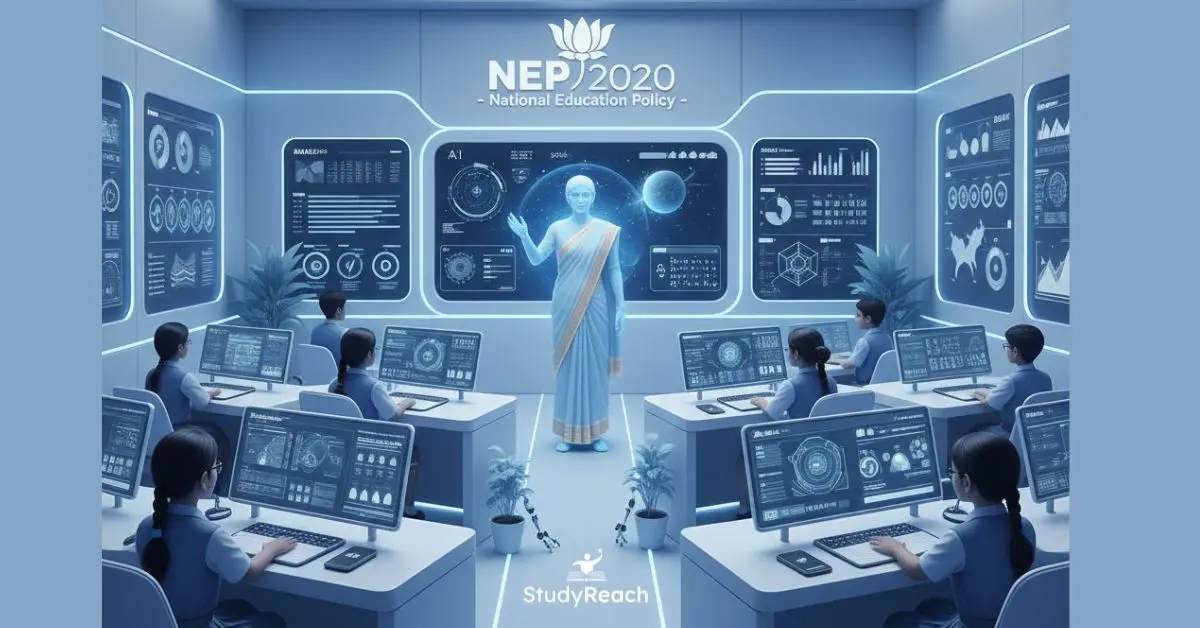



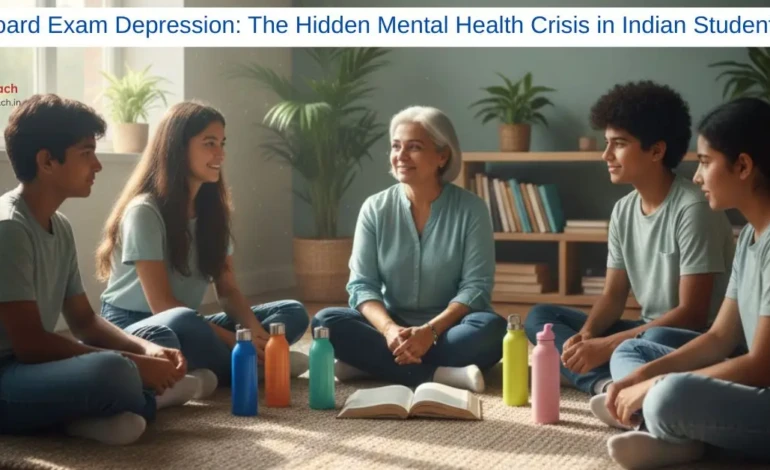
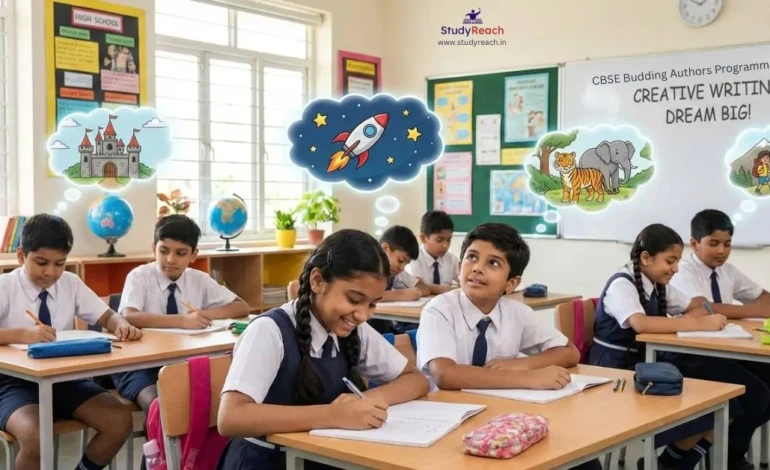
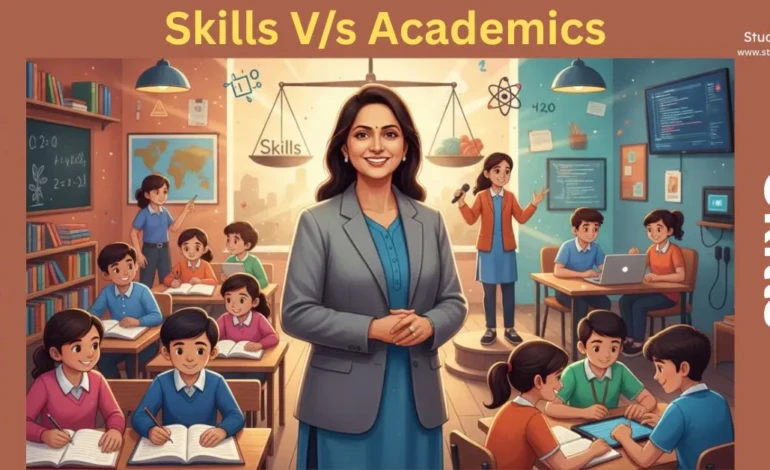



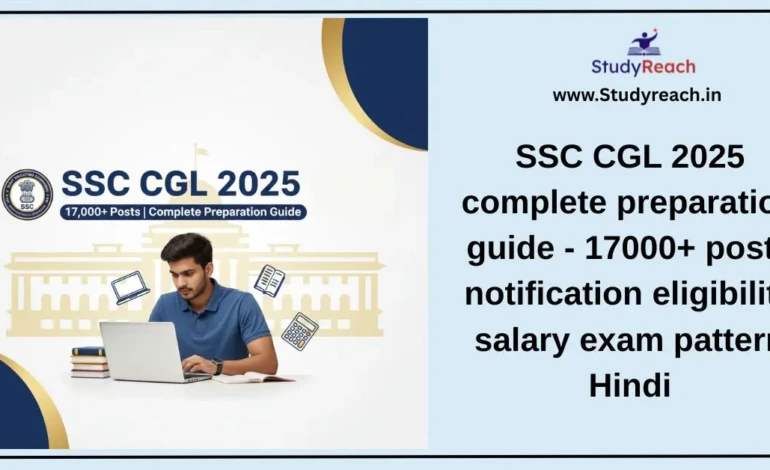



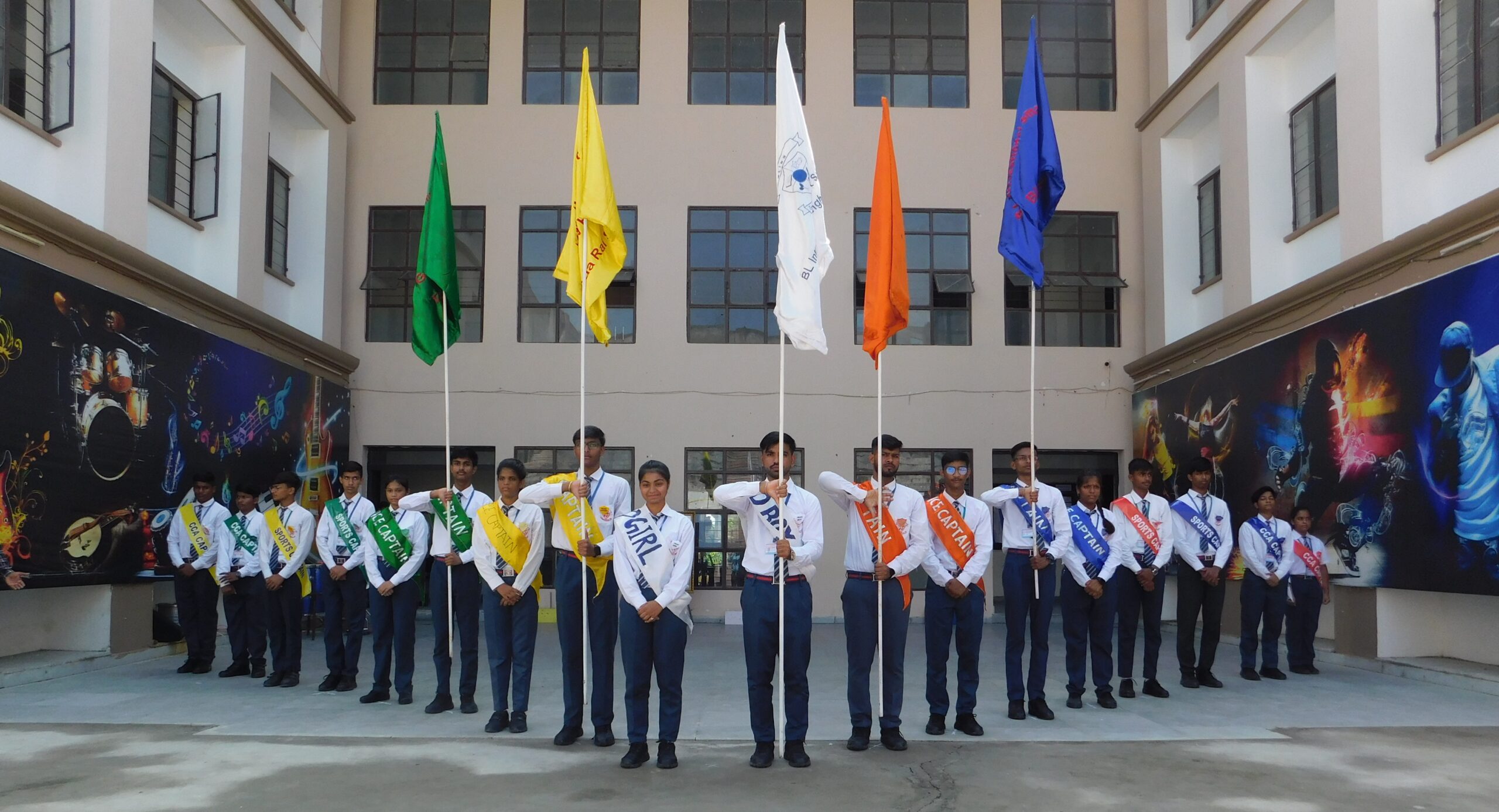
1 Comment
[…] CBSE–NCB Drug Awareness Programme: 5 Inspiring Steps for a Drug-Free Future […]